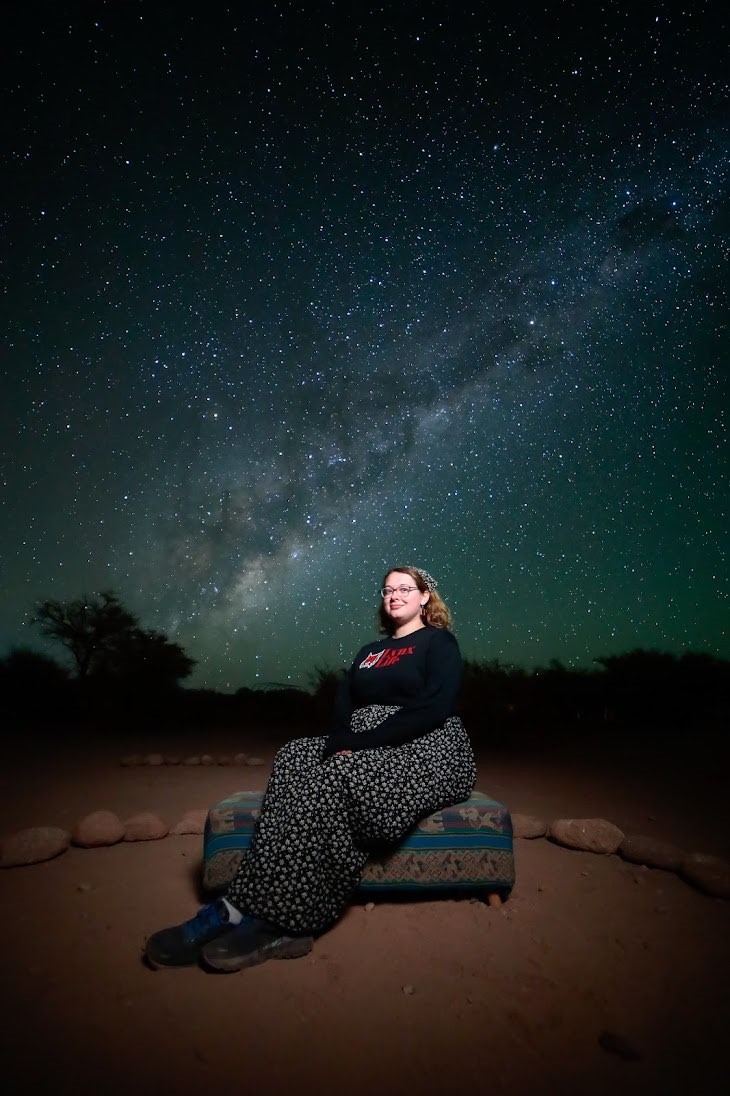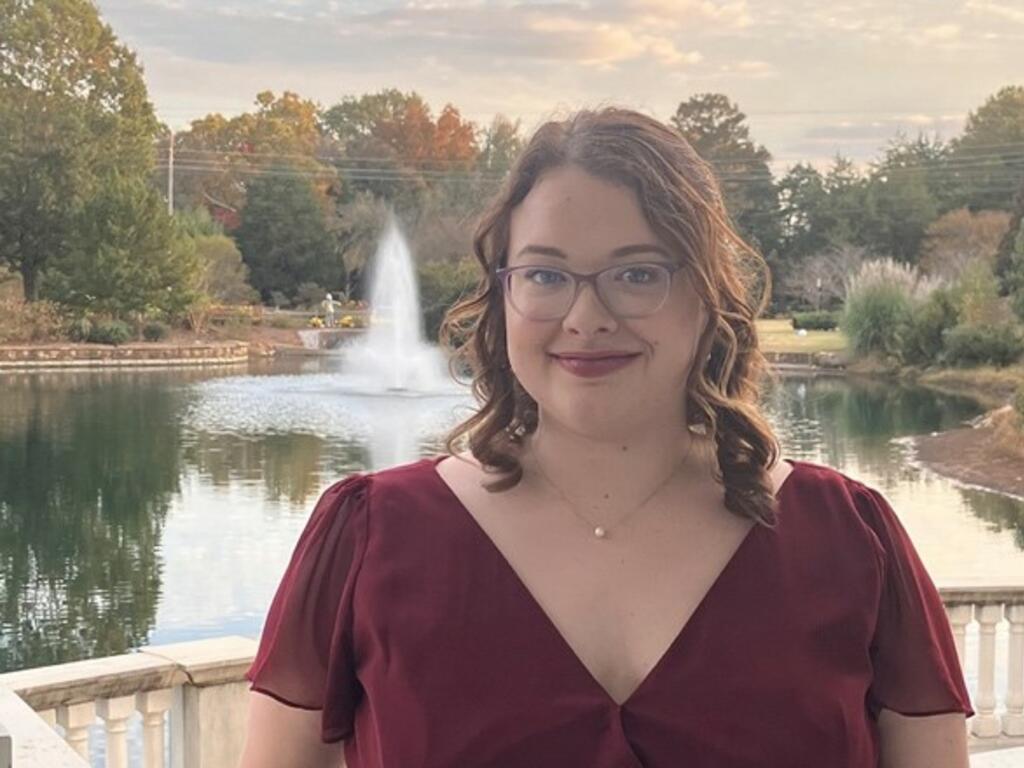Lily Whitesell ’24 has had a passion for STEM subjects—science, technology, engineering and mathematics—for as long as she can remember. Throughout her time at Rhodes, that passion flourished into endeavors spanning multiple disciplines, institutions, and countries and cemented her commitment to supporting other young women in STEM.
The Jones Chapel, AL, native had a unique set of criteria when she began her college search. She knew from the outset that she wanted to double major in mathematics and physics, but also wanted to attend a small liberal arts college. After sitting in on Associate Professor of Mathematics Dr. Eric Gottlieb’s multivariable calculus class, she was sold. “His passion for teaching and his students blew me away. Every professor I talked to was excited to tell me about research opportunities and classes I might like to take,” she says.
Whitesell’s forays into undergraduate research began her very first semester at Rhodes. She expressed her interest in astrophysics to Associate Professor of Physics Dr. David Rupke, and he suggested she begin some preliminary reading and enroll in one credit hour of research the following semester. This paved the way for Whitesell to complete a research fellowship with Rupke that summer and then expand the scope of the project over the next two years.
Throughout her work on this project, called Q3D, Whitesell worked with Rupke to rewrite and improve an integral field spectroscopy fitting software used by NASA’s James Webb Space Telescope to study quasars and their impact on host galaxies. The software they pioneered, q3dfit, is now available for public use. Working with Rupke, Whitesell became a junior author on three published papers in the Astrophysical Journal and one in the Astrophysical Journal Letters.

However, this isn’t the only project Whitesell participated in. She has also worked with Professor of Mathematics Dr. Christopher Seaton on a project in differential geometry, “Integrating O(n) Invariant Functions via the Hilbert Embedding,” which they expect to submit for publication this summer. This project was funded by the Rhodes Fellowship Program and the Robert Allen Scott Award in Mathematics, an award given by Rhodes to one junior annually. She also participated in a Research Experience for Undergraduates (REU) in astrophysics at Rutgers University.
When not undertaking academic endeavors, STEM is still at the forefront of Whitesell’s mind. She has been a member of the Women in STEM club since her first year at Rhodes. “It was extremely helpful to connect with other women in science and mathematics and have a community to rely on,” she says. This year, Whitesell serves as the president, mathematics chair, and physics chair of Women in STEM, as well as the membership chair of the Society of Physics Students.
While Whitesell had plenty to juggle double majoring in math and physics, conducting research, and participating in extracurriculars, she always envisioned studying abroad as part of her college experience. Through the University Studies Abroad Consortium, she spent a semester in Chile, a country she had always dreamed of visiting. “The Atacama desert is one of the best locations in the world for astronomy, and I had been studying Spanish for years and wanted to become more fluent. It was the perfect place for me,” she says.
Taking all of her classes in Spanish and speaking only Spanish with her host family, Whitesell’s language skills flourished. Throughout her time in Chile, she went camping with her host family, traveled the country alone and with friends, went on numerous astronomy tours, visited UNESCO World Heritage Sites in the Chiloe archipelago, and more. “I had a phenomenal time and can’t recommend studying abroad enough,” she says.
With a well-rounded college career under her belt, Whitesell will graduate this May with degrees in math and physics as well as a minor in Latin American and Latinx Studies. Her extensive academic achievements have yielded her multiple offers from graduate programs, and she will begin her PhD in theoretical mathematics at The Ohio State University this fall.
By Hannah Meit ’25
